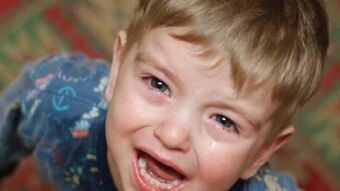Broken Attachments – A Catalyst Special
Marriage and Family
Phillipa Taylor, CARE’s marriage and family consultant, focuses on the child.
This article is taken from Catalyst Magazine, Issue 4 – click here to read the full magazine.
Picture the scene. A one-year-old boy, with no biological father around, moves with his mum into the house of her boyfriend, whom they have known for a few months. All goes well for a while, he gets on well with the boyfriend, enjoys spending time with him and loves having another man in the house. In fact, he grows more and more attached to this father figure. Unfortunately the relationship doesn’t last, Mum moves out and the child, now nearly two, doesn’t really understand why, but accepts it. A year or so later the cycle is repeated. This time the boy is a little more wary of the new boyfriend but is slowly won over and, once again, gets used to having a male figure around and gradually becomes more and more attached to him.
Sadly, once again, the break-up happens and off they go. The young boy feels quite rejected and takes it more personally, despite Mum insisting it’s not his fault. To save her son from having to leave his nursery and local friends, she persuades her next boyfriend of two months to move in with her. This time it takes longer for the boy to accept a new man around, but being a young child, and ever hopeful, he eventually allows himself to draw closer to him.
Inevitably, when this relationship also fails, the boy feels a deeper sense of rejection. This time he subconsciously senses that he needs to protect himself in the future from getting too attached to others. One of the most tragic aspects of this scenario is how common it is.
Family instability
In February this year, a visit to the UK by leading US family researcher Scott Stanley, for Marriage Week, co-organised by CARE, exposed the statistic that half of all children are now born to unmarried mothers, and that these mothers have nearly three times as many residential changes as married parents. Even more striking, the average number of changes in ‘dating partnerships’ is four times higher among unmarried mothers than married mothers, in the first five years of a child’s life.1
A ‘dating partnership’ is one that lasts about two months, long enough for a child to start to make an attachment.
This finding illustrates the need to take such short-term relationships into account when describing children’s exposure to family instability – the relationship may not be marriage or a cohabiting relationship, but it can still profoundly impact the child.
Looking at the figures in a different way, mothers who had been single at the birth of their child were asked about new partners, and only three per cent said they had never changed boyfriends. In short, relationship stability is very rare among single-mother families.
There is yet a further complication. Many unmarried mothers go on to have other children, with a new partner. Statistics show that a third of unmarried mothers have had a baby by a new partner by the time their first child is five.
While these are statistics from the United States, the figures in the UK for births to unmarried mothers are very similar, and the frequency of partnership and residential changes probably are too. In Britain, as in the States, statistics for 2010 show that nearly half of all babies were born outside a marriage or civil partnership.
Challenging issues
So what is the long-term future for children growing up in these unstable and complex ‘families’? What is the effect on children who only know broken attachments, who have learnt not to love too much and who don’t see how to build lasting relationships? These young children are not learning about working through difficult relationships but only know how to break up and walk away.
These are challenging issues. The numbers of unmarried births is on the rise; the rate of relationship breakdown is increasing, especially outside marriage. We really need to consider the long-term effects of broken attachments on our youngest children and think about what we must do to protect and care for them.
The new Marriage Foundation set up by Sir Paul Coleridge this year, with input from CARE, could hardly be more timely. He has seen streams of children and young people coming through the justice system who have been profoundly affected by the relationship break-up of their parents. So one of the primary aims of his Foundation is to develop a practical mentoring programme for young people who aspire to build long lasting committed relationships, ideally within marriage.
CARE is fully supportive of this initiative and we also work alongside other organisations such as Care for the Familyto promote strong, secure and loving family life in Britain.
—————————————————————————————————————-
1. McLanahan, S. & Beck, A.. 2010. ‘Parental relationships in fragile families’. The Future of Children, 20(2)




Share story
Broken Attachments – A Catalyst Special